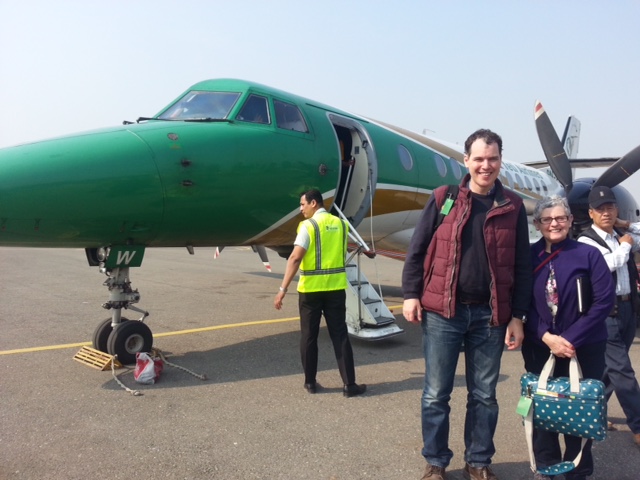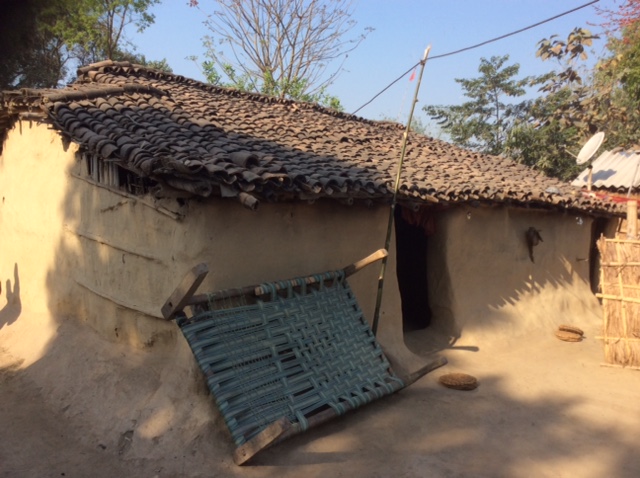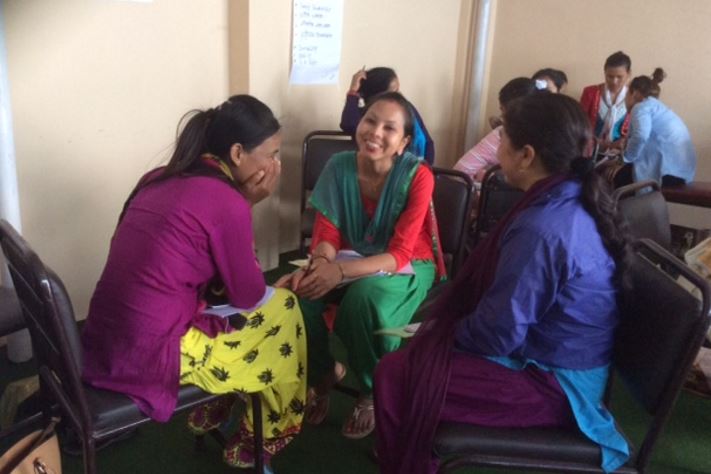22nd April 2016
A guest blog by Ish Fawcett on her recent experience of volunteering on a maternal mental health project in Nepal.
I have recently returned from Nepal where I volunteered to teach on a maternal mental health project.
This programme was established with funding from the Department for International Development (DFID), managed through Tropical Health Education Trust (THET) in partnership with Tribhuvan University Nepal and supported by a charitable organisation in Nepal called Green Tara Nepal. The charity works with academics from both Bournemouth University and Liverpool John Moores University (LJMU).
Previous work has involved a needs assessment and the setting up of 23 birthing centres in a very poor rural area of Nepal which borders northern India. Healthcare in this area is minimal, so the establishment of a safe place to deliver babies has had a positive effect. However, it has been discovered that the mental health of a percentage of young women of childbearing age in this region is poor, with one of the leading causes of death being suicide.1
The delivery of antenatal care in the birthing centres is carried out by local women who have had some basic midwifery training. These Auxiliary Nurse Midwives (ANMs) support the women throughout their pregnancies and there are four antenatal contacts during this time, as is the World Health Organisation (WHO) recommendation.
This project has been set up with the help of short-term volunteers from the UK who have expertise in mental health issues in pregnancy and the focus has been on skill-building for the ANMs; helping them to recognise and support women who have common mental health difficulties in the perinatal period.
My input involved introducing the concept of common perinatal mental health issues and the effect that these can have on the mother, her baby, the family and the local community. Alongside this, I was joined by a volunteer from LJMU who focused on the teaching of active listening skills. We completed this training over three days, teaching over 100 ANMs in a venue that was close to their place of work. This meant that there was no need for an extended time away from their base and this would not affect the service provision in the birthing centres. If you are interested I have written a number of blogs of my days in Nepal.
The ANMs were an enthusiastic and interested group of women and we really enjoyed teaching them about ways of recognising mental health issues in pregnancy and also finding ways of engaging with the women to talk more openly about any difficulties they were experiencing. Referral on to a hospital Consultant was discussed, but we were very aware of the need for clinical supervision for the ANMs as this could be a very difficult emotional time for them also. This issue is to be taken forward once the training is completed.
There will be a continuation of this training until the end of the year (5 sessions in total). The UK organisers are still looking for additional volunteers. If you are interested in volunteering later this year for a week to ten days in Nepal please contact Edwin van Teijlingen at Bournemouth University ([email protected] ). This project includes an evaluation of the changes that have been noted since the training began. These interviews will be conducted with both the ANMs and the women that have received their care.
The training materials will then be put together to support the curriculum of ANM training in Nepal. Presently there is limited training in mental health issues and there is no specialism in Midwifery, Mental Health or Public Health nursing.
- Simkhada P, van Teijlingen E, Winter RC, Fanning C, Dhungel A, Marahatta SB. (2015) Why are so many Nepali women killing themselves? A review of key issues, J Manmohan Memorial Inst Health Sci 4(1): 43-49.




